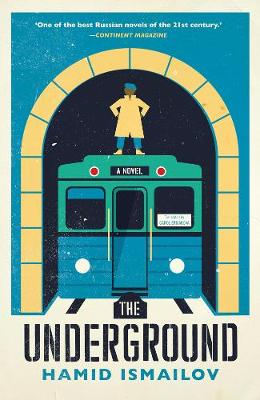
Lianne
Written on Aug 6, 2014
Ismailov’s novel is quite reminiscent to Dostoevsky’s Notes from the Underground, which is not surprising given the title of this novel and the amount of reflection on Russian literature present throughout. It’s interesting to read and see how the author connects a character’s memory or experience with a station in Moscow, providing a rather dark and dank sort of atmosphere to the novel.
The novel itself introduces the reader to the hardships that Mbobo faces as a haf-Siberian, half-African living in Soviet Russia and in the lower rungs of Soviet society in the 1980s. For a society whose ideology includes the notion of friendship of nations and being equal with their fellow comrade, much of Mbobo’s experience is similar to many people of his race and parental heritage in the West during the century. He’s met with curiosity and revulsion, mockery and dismissal. It doesn’t help that he doesn’t have a stable family life as his mother takes him along from one house to another, trying to find work, trying to find a partner, making her way however she can.
The novel also reflects on society and Russian literature over the course of the chapters, sometimes reflected through Mbobo’s thoughts and his experiences in certain stations. Like the rest of the book, it doesn’t feel as fully-developed as they could be, serving more as snapshots and passing thoughts much like Mbobo’s memories and expeirences. It ultimately does not come out as a very hopeful book, despite of the open-ended ending, as Mbobo feels further isolated over the course of the book.
The Underground is a very interesting novel set at an interesting and tumultuous period of Soviet and Russian history. The storytelling also kept me quite engaged to the book; despite of all of Mbobo’s bad experiences and hardships, you can’t help but turn the page and find out what will happen next or what conclusion he will draw from these experiences. Readers interested in Russian and Soviet literature will want to check out this novel.
